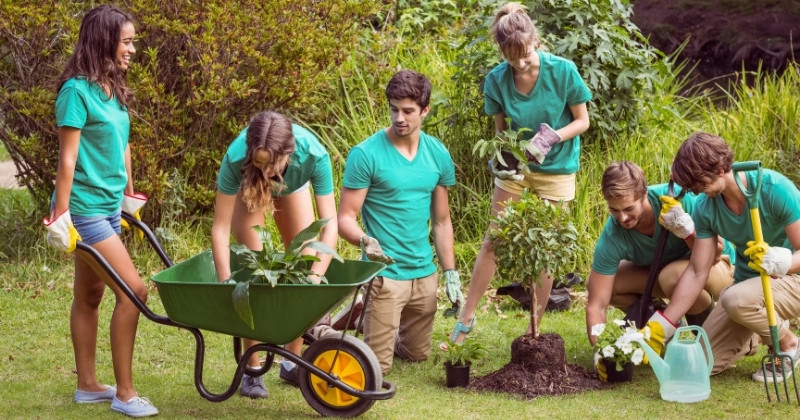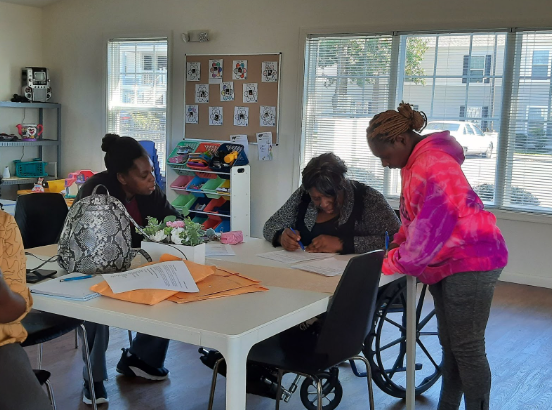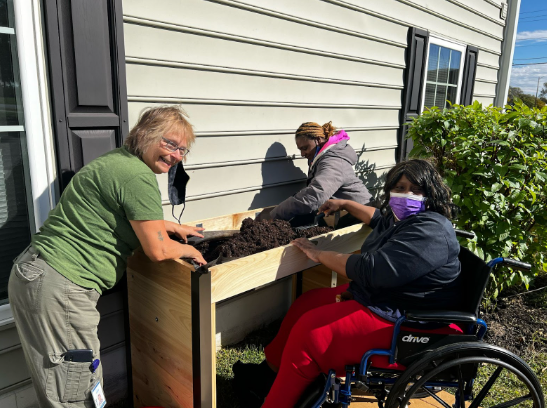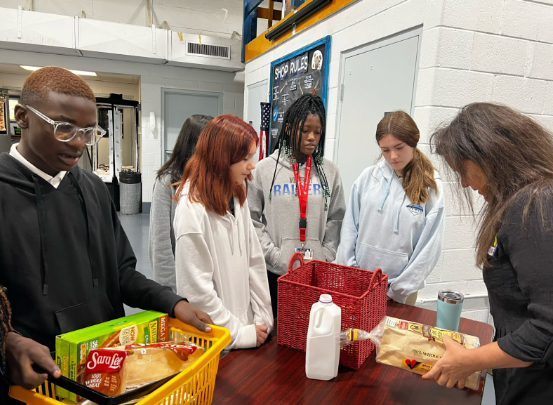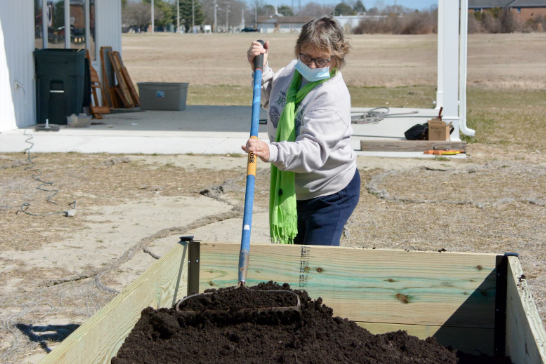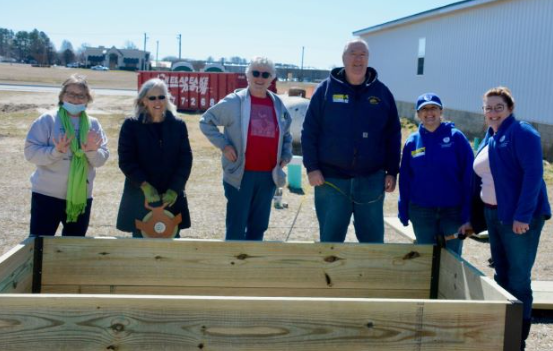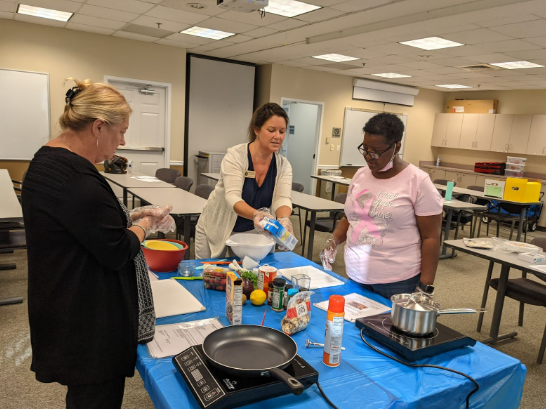
Community Health
Community Health Leadership
Becoming a Community Health Volunteer helps to cultivate wellness across the country.
America's Cooperative Extension System, University of Delaware, in partnership with National 4-H Council, is equipping volunteer leaders to help their neighbors be healthier at every stage of life. With the support of the Robert Wood Johnson Foundation (RWJF), the nation’s largest philanthropy dedicated solely to health, these communities are cultivating wellness and fostering a Culture of Health in America.
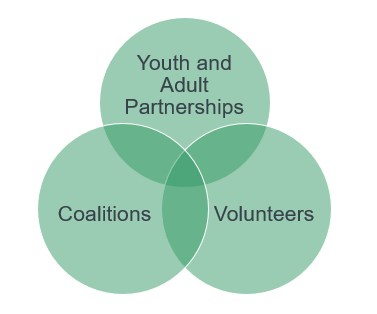
University of Delaware is currently focusing efforts in three communities across the state:
- New Castle (Route 9)
- The University of Delaware Cooperative Extension has been working with the Route 9 Health Subcommittee, led by WILMAPCO. Learn more about the work of the community residents and partners here: http://www.wilmapco.org/route9/
- Dover
- The University of Delaware Cooperative has been working with a group of organizations that provide health and wellness education, clinical services and educational supports to youth and teens in the Dover area and surrounding communities.
- Seaford
- The University of Delaware Cooperative Extension has been partnering with the Sussex Health Coalition for many years to assist in their mission engage the entire community in collaborative family-focused effort to improve the health of children, youth and families in Sussex County. To learn more about the Coalition and the work that they do for the residents of Sussex County, see here: https://www.sussexcoalition.org/. Extension is currently working with the Coalition, Children and Families First, and other partners on the Seaford Community of Hope project. To learn more about the project, click here: https://www.cffde.org/seafordcommofhope
INTEREST IN VolunteerING?
Are you interested in becoming a leader in your community related to health and well-being? Extension offers training to individuals and community partners looking to improve the health in their communities. Partner organizations looking to train their staff on community health core content, or to deliver an Extension program should contact Gina Crist, Community Health Specialist to discuss options. Extension provides training that gives a basic understanding of the social determinants/vital conditions. If you are and individual interested in being on the list to receive training information, please complete the interest form.
How do I become a volunteer?
- Complete 40 hours* of training on public health, youth and adult partnerships and specific content around a track of interest
- 6 hours of in-person core content
- 17.5 hours of online core content training
- 10 hours of experiential learning in a topic area of your choice
- 3.5 hours of practicum – practicing curriculum, shadowing someone else teaching, attending events with an agent, etc.
What will I do as a volunteer?
- Become part of the Cooperative Extension team!
- Engage in ongoing learning opportunities around health and well-being
- Attend coalition meetings to learn more about community needs and current projects
- Engage in teaching in the community around specific topic areas
- Work on projects that change environments to better support healthy choices
- Work in teams of youth and adults to identify and complete projects that focus on health and well-being
- Choose a project of interest
- Food and nutrition education
- School and Community Gardens
- Walk and Roll Club Leader
- Well-being education
*Volunteers will be interviewed and go through a background check in order to be eligible for training. As noted, all volunteers will go through 40 hours of training. If an individual is already an Extension volunteer, some hours of training already taken will be honored toward this training.
Questions?
Contact Gina Crist, gcrist@udel.edu
Training Outline
An outline of the training is below. The training is self-paced and prepares individuals to work in the community on education, systems and environmental issues that will support healthier communities.
Volunteer trainees will complete the training on their own, with the last 10 hour being spent connecting with county agents and other volunteers to learn more about the county projects and what they may be doing with their volunteer time.
- Training Overview/Accessing information
- What is a Culture of Health?
- Creating a Culture of Wellness
- Social Determinants of Health
- Diversity and Inclusion
- Health Equity
- Google Goggles
- Understanding Data
- Health Behavior Change
- Policy, Systems and Environmental Change
- Health Impact Pyramid
- Socio-Ecological Model
- Youth and Adult Partnerships
- The Essential Elements of Youth Development
- Public Speaking
- Marketing for Master Wellness Volunteers
- Exercise Recommendations
- Chronic Disease
- 10 hour spent connecting with county agents and other volunteers to learn more about the county projects and what they may be doing with their volunteer time.

